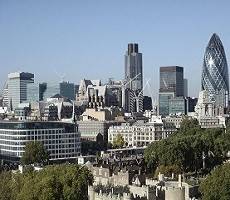May 24, 2015
More intensive space use is helping to drive down office costs worldwide
 Office costs are falling worldwide, in part because occupiers are using space more intensively, according to the latest Office Thermometer report from commercial property firm DTZ. The report found that the West End of London has comfortably retained its position as the world’s most expensive location. The average annual cost of a workstation in the area is $29,000 (about £19,000), fully a third higher than second placed New York. The report found that office costs continue to fall significantly in most regions, nearly 4 percent overall on average, although there were increases in fast growing local markets, especially in the Middle East. According to the study, more intensive use of office space by occupiers, an appreciating US dollar, weak economic growth in Europe and significant new supply in emerging markets have combined to cut costs worldwide.
Office costs are falling worldwide, in part because occupiers are using space more intensively, according to the latest Office Thermometer report from commercial property firm DTZ. The report found that the West End of London has comfortably retained its position as the world’s most expensive location. The average annual cost of a workstation in the area is $29,000 (about £19,000), fully a third higher than second placed New York. The report found that office costs continue to fall significantly in most regions, nearly 4 percent overall on average, although there were increases in fast growing local markets, especially in the Middle East. According to the study, more intensive use of office space by occupiers, an appreciating US dollar, weak economic growth in Europe and significant new supply in emerging markets have combined to cut costs worldwide.




































May 27, 2015
Smart buildings, smart cities and the promise of infinite data
by Paul Doherty • Cities, Comment, Facilities management, Technology
(more…)